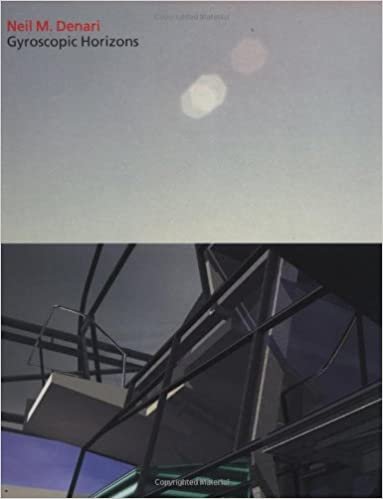In
this first monograph on his work, architect Neil Denari sets his sights
on the gyroscopic horizon, a term based on the altitude device found in
most aircraft. Just as a plane's gyroscope creates an artificial
horizon line for the pilot, Denari often eliminates the physical earth
as datum or locus of experience, turning to cultural, economic, and
graphic forces as points of departure for his work.
Denari, the
third director of Los Angeles's innovative Southern California Institute
of Architecture (SCI-Arc), has made a reputation worldwide for his
projects, installations, and writings on the question of technology and
contemporary culture; it has been said of Denari's firm that it moves
toward the question of place "with the same dynamic flow as a Boeing
crossing the International Dateline headed for the arrival lounge at
Narita Airport."
This long-awaited book combines photography,
cultural criticism, and meditations on Los Angeles and Japan, along with
Denaris trademark computer renderings and descriptions of over 20
architectural projects from the last ten years. Three of the most
important projects discussed are the addition and renovation of the
Arlington Museum of Art, the construction of an experimental space at
Gallery MA in Tokyo (which won awards from I.D. Magazine and the
Architectural Foundation of Los Angeles), and the first Microsoft retail
store. Other projects include prototype housing in Tokyo, the
Kansai-kan Library Competition, the Vertical Smoothouse in Los Angeles,
Technology Research Park in Agoura Hills, and the Museum of the 20th
Century in Los Angeles.
Gyroscopic Horizons,
whose territory ranges from the freeway to the Internet, illustrates
the intense vision of this architect who draws inspiration from the
complexities of modern-day machines and life.

